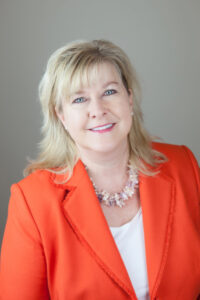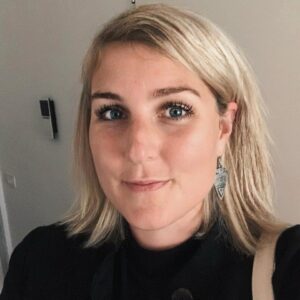A Women in Localization view of the TAUS “Reinventing the Translation Industry” online event
This June TAUS invited the industry to join them in a thought experiment to forecast the state of the language industry in the Summer of 2021 labelled “Que será será 2021 – Reinventing the Translation Industry”. The discussion focused on the effects of the current pandemic on our industry and the consequences that we can expect from it.
An emphasis was put on the fact that we can expect a “reinvention” of our industry and work environments. A natural question was: Given this imminent transition, will there be an effect on Women in Localization? Where can the opportunities in this change be found? How can women actively contribute?
To answer these questions, I reached out to fellow TAUS conference speakers and Women in Localization (W.L.) Founder and Board Member Anna N. Schlegel (Vice President, Global Portfolio Lifecycle Management at NetApp) and Board Member Allison McDougall (SVP, Global Revenue at Amplexor). We sought additional advice from the conference organizer Anne-Maj Van der Meer (Director of Events, TAUS).
Never forget where you’ve come here from
To understand change, one needs to understand the status quo. With a majority of approximately 70%, our industry’s workforce is predominantly female. In top positions, an overrepresentation of men can be seen, with a 50-50 ratio between both genders (Source: Gender and Family in the Language Services Industry, CSA Research, June 2017).
The TAUS online event had 309 attendees, 145 of which were female (approx. 47%). Of the 35 speakers, 14 of them were women (40%). This confirms the 2017 numbers of overrepresentation in higher positions since this is the main group joining TAUS events. The team organizing the event was mostly female with 3 women taking the lead on all organizational tasks.
Incremental steps change the world
These numbers look promising since the ratio of female speakers at localization conferences have been known to be lower in the past. We expect the numbers of female attendees – and specifically speakers – to rise in the future. One factor that might accelerate this development is the current movement to more online events, which reduces obstacles for availability.
Allison McDougall focused on accelerated technology development when we talked about the event. “While innovation is present, it’s not necessarily industry-changing. The more interesting fact is that actual technology adoption appears to have accelerated dramatically during this pandemic. With this, traditional roles will likely transform even more quickly, requiring professional and personal agility, a skill that women tend to naturally embrace. Now more than ever, we need to honor our professional and personal boundaries.”
Nonetheless, Allison sees an overuse of the term “agile”. Her key to success lies in creating a laser-focused forward momentum, even when it is not perfect.

“We’re in an environment that allows for much experimentation and forgiveness (respect!) when things don’t go as planned. Capitalize on this and be bold! Together, we can encourage confidence and promote safe environments where people are at liberty to share ideas, experiment with new technologies and processes and pivot as necessary to achieve success – just like my Uncles Orville and Wilbur Wright did back in 1903 on a beach in North Carolina.”
Anna N. Schlegel goes a step further – she is certain that there are female entrepreneurs out there who can bring the industry into the next stage of globalization evolution.

“Where are these women that file patents and develop new approaches to globalization? Women establishing companies that are AI-driven can step in and change it all; we know that localization alone does not drive global business but understanding global customer data can be a great driver. TAUS would be an excellent platform to help ID those women who understand how to drive global business, who bring products into new markets. We need to identify them!”
Anna is certain that understanding the role models who broke through, for example in the coding realm in the 1950s and 1960s, should be repeated. “The localization industry is not a difficult business to be in as a woman, stats show that, and we know of women who are very empowered and can find that next global business need. If you are innovating in the globalization space, come forward!”
Anne-Maj Van der Meer wrapped up the discussion in an excellent manner.

“Just recently I met with a friend, and she was amazed at how relaxed and balanced I appeared. I had worked just as much as always, so I had not even realized this change about myself. The only thing that had been different was that I couldn’t travel anymore, which is a big part of my work and private life. Afterwards I reflected on it: Not travelling taught me that we do not need to find something outside that already exists inside of us!”
Get involved
Still, we should not fool ourselves: we will be facing a tough time in the coming 12 months. The TAUS online event has shown that even the brightest in our industry are uncertain about what will come out of this pandemic. With accelerated adaption of innovation, things will shift, and there is a lot of room for ground-breaking innovation to come. So, in a nutshell, what can you do to approach Summer 2021 head on?
- Be innovative: Rethink and adapt your business model to a modern world – this might be the best chance you get to do it.
- Drive innovation: Actively ask your superiors or the companies you work for, what are they doing in terms of adapting innovation and how can you be a part of it?
- Talk innovation: Connect and stay in touch with your peers and discuss your new approaches. If you want to innovate, but don’t know how, get in contact with others.
- Failures are lessons learned: Ask for help when you need it and give and offer help where you can.
- Focus on the right mind set: Be bold, but do not lose your empathy.
Finally, this is a salute to all the female mavericks out there who want to get active and have – or want to have – innovative ideas. Come and find us, let us get into a dialog and find ways together to reinvent the translation industry, and through this, the role of women.
